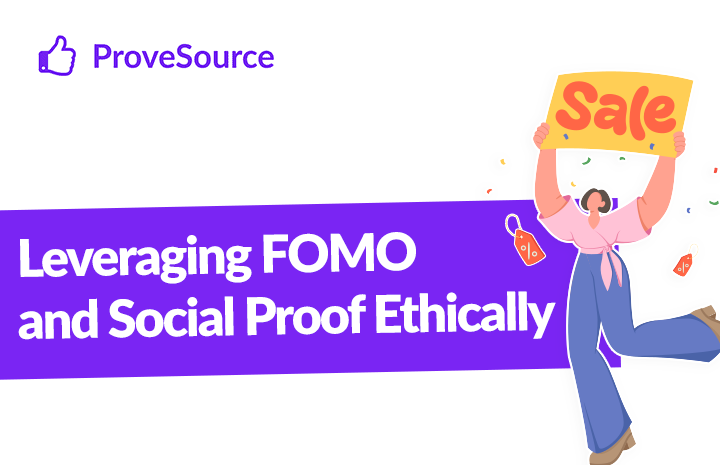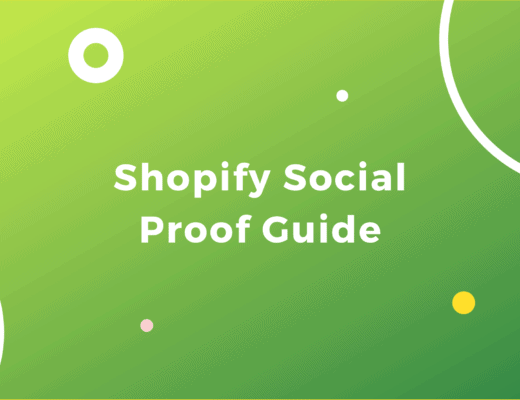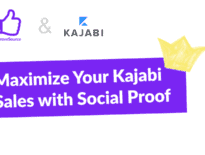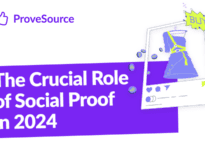The human desire to belong and make informed decisions fuels two powerful psychological phenomena: fear of missing out (FOMO) and social proof. While often used interchangeably, understanding the subtle yet crucial differences between them is essential for effective marketing and sales strategies. This blog post dives deep into the nuances of FOMO and social proof, exploring their distinct characteristics, practical examples, and their potential benefits and drawbacks in influencing consumer behavior.
Understanding FOMO: The Anxiety of Exclusion
FOMO, as the name suggests, is the anxiety associated with the possibility of missing out on an exciting or rewarding experience. This fear stems from a combination of factors:
- Social comparison: Observing others engage in enjoyable activities or acquire desirable products can trigger feelings of inadequacy and a desire to replicate their experiences.
- Loss aversion: The potential loss of a positive experience is often perceived as more significant than the potential gain of something else.
- Scarcity and urgency: Limited-time offers, exclusive events, or dwindling stocks can exacerbate FOMO by emphasizing the fleeting nature of the opportunity.


Examples of FOMO in Marketing
- Limited-time sales and discounts: “Get 50% off, but only for the next 24 hours!”
- “Almost sold out!” notifications: Highlighting the limited availability of a product.
- Social media posts showcasing exclusive events or experiences: Creating a sense of exclusivity and desirability.
Pros of using FOMO in marketing
- Increased urgency and impulse purchases: By creating a sense of scarcity and time pressure, FOMO can encourage quicker decision-making.
- Heightened engagement: Limited-time offers and exclusive content can generate excitement and drive users to engage with the brand.
- Boosts conversions: The fear of missing out can incentivize purchase decisions before the opportunity disappears.
Cons of using FOMO in marketing
- Can damage brand reputation: Overly aggressive FOMO tactics can be perceived as manipulative and inauthentic, leading to negative brand perception.
- Short-term gains, long-term concerns: While FOMO may drive immediate sales, it might not foster customer loyalty or build long-term trust.
- Potential for buyer’s remorse: Impulse purchases driven by FOMO can lead to regret and dissatisfaction if the product or experience doesn’t meet expectations.
FOMO in essence is a marketing strategy that preys on people’s fear of missing out on something good. It creates a sense of urgency and scarcity, mendorong orang to make impulsive decisions.
Understanding Social Proof: The Power of the Crowd
Social proof, on the other hand, leverages the influence of others’ opinions and behaviors to guide individual decision-making. It stems from the inherent human tendency to trust the choices and experiences of others, particularly those perceived as similar or credible.
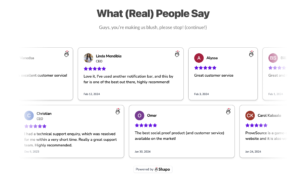

Examples of Social Proof in Marketing
- Customer testimonials and reviews: Sharing positive feedback from satisfied customers builds trust and credibility.
- Influencer marketing: Partnering with individuals trusted by the target audience leverages their social influence.
- Displaying social media engagement: Showcasing likes, shares, and comments demonstrates the product’s popularity and community support.
Pros of using Social Proof in Marketing
- Enhanced trust and credibility: Positive experiences shared by others provide social validation and reassurance for potential customers.
- Reduced perceived risk: Seeing others endorse a product or service can alleviate concerns and encourage individuals to take the leap.
- Organic brand advocacy: Leveraging genuine customer experiences fosters authentic connections and builds brand loyalty.
Cons of using Social Proof in Marketing
- Potential for inauthenticity: Fabricated testimonials or manipulated social media engagement can backfire and damage brand reputation.
- Overreliance on external validation: Focusing solely on social proof can overshadow the product’s intrinsic value and unique selling points.
- Difficulty in controlling the narrative: Negative reviews or experiences shared online can have a detrimental impact on brand perception.
Social proof, on the other hand, is a marketing strategy that relies on the power of influence. By showing people that others like and trust a product or service, you can encourage them to do the same.
The Key Takeaway: Striking the Right Balance
Both FOMO and social proof are powerful tools for influencing consumer behavior, but their effectiveness hinges on responsible and ethical implementation. FOMO can be a strategic tool for creating urgency and driving short-term conversions, but it should be used judiciously to avoid fostering a manipulative brand image.
Social proof, on the other hand, offers a more sustainable approach by building trust and credibility through genuine customer experiences and authentic community engagement. This fosters long-term brand loyalty and encourages organic brand advocacy.
The ideal marketing strategy leverages both approaches strategically. Utilize social proof to establish trust and showcase

